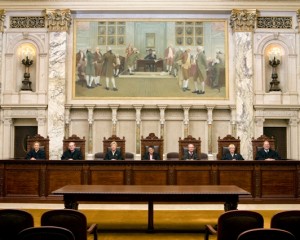Wisconsin’s Narrow Interpretation of Padilla v. Kentucky
 While in my final semester of law school, the United States Supreme Court issued its decision in Padilla v. Kentcuky, holding that the Sixth Amendment’s guarantee to the effective assistance of counsel includes affirmative advice about the immigration consequences that flow from a criminal conviction. 559 U.S. 356 (2010). I have never practiced criminal defense in a pre-Padilla world. I have always considered it my duty, through research, and often times consultation with an immigration attorney, to determine what the client is facing if he or she accepts a plea. Likewise, I have always considered it my duty, if it is important to the client, to try and mitigate the immigration consequences when negotiating a plea. While it is impossible to mitigate all immigration consequences, it is possible to provide clients with an analysis about the consequences, or potential consequences, of a plea. The most important thing, in my opinion, is that a client understands the immigration consequences associated with a conviction, and thus, is given an opportunity to make an informed decision.
While in my final semester of law school, the United States Supreme Court issued its decision in Padilla v. Kentcuky, holding that the Sixth Amendment’s guarantee to the effective assistance of counsel includes affirmative advice about the immigration consequences that flow from a criminal conviction. 559 U.S. 356 (2010). I have never practiced criminal defense in a pre-Padilla world. I have always considered it my duty, through research, and often times consultation with an immigration attorney, to determine what the client is facing if he or she accepts a plea. Likewise, I have always considered it my duty, if it is important to the client, to try and mitigate the immigration consequences when negotiating a plea. While it is impossible to mitigate all immigration consequences, it is possible to provide clients with an analysis about the consequences, or potential consequences, of a plea. The most important thing, in my opinion, is that a client understands the immigration consequences associated with a conviction, and thus, is given an opportunity to make an informed decision.
Prior to Padilla, immigration consequences were considered a collateral consequence of a criminal conviction, which meant that a claim of ineffective assistance of counsel was limited to instances of affirmative misadvice, rather than failure to render any advice at all. Padilla changed the landscape of the Sixth Amendment, and the decision reflects the Court’s recognition that deportation has long been recognized particularly harsh penalty associated with a criminal conviction, and that changes to the immigration law have made deportation “virtually inevitable” for most non-citizens with a criminal conviction. Id. at 360.
The Padilla Court, however, seemed to split the deficient performance prong of a Strickland analysis by linking the specificity of the advice required with the clarity of the immigration consequence. Accordingly, when the immigration consequences of conviction are “clear,” or “succinct and straightforward,” counsel’s obligation to give specific advice regarding those consequences is “equally clear.” Padilla, 559 U.S. at 369. In an unclear situation, a defense attorney still must advise his client, but the advice may be reduced to a more general warning. Id. Thus, leaving open for interpretation what constitutes a “clear” consequence, and what defense counsel’s duties are to find out the consequence.


